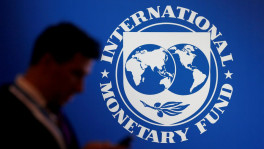Why we sometimes die when trying to avoid risk
The roads were empty, yet fatal car crashes leaped last year during the pandemic. That's not as weird as it seems

Last summer I met up with two friends for dinner at an outdoor restaurant. I hadn't seen much of them in the early months of the pandemic because they were afraid to venture out. One said meeting up felt like "we're playing Russian Roulette with our lives."
As an economist who studies risk, this struck me as peculiar. The odds of dying from playing Russian Roulette are 1 in 6. The odds of contracting Covid-19 while outdoors and distanced — and then dying as a youngish healthy person — were far less than 1%. But what really flummoxed me is that both my friends had biked through city traffic to get to dinner. That felt safer to them than riding on the subway or taking a cab or rideshare service. It seemed more dangerous to me, and certainly more dangerous than eating a meal outside. Which was disheartening, because I'm the kind of economist who believes, despite all our biases, humans are well equipped to make sensible risk decisions.
Yet my friends' behavior wasn't so unusual. Nearly a year later it's still common to see helmetless-but-masked bikers in New York City. And it's showing up in the data too. After years of decline, the rate of traffic fatalities shot up in 2020. Nationally, 38,680 died on the road, up more than 7% from 2019 even though Americans drove fewer miles because of widespread lockdowns. Until last year, traffic fatalities had been trending down because cars have become so much safer.
A different kind of risk
Drivers were more reckless during the pandemic, causing a spike in deaths
Last year was an outlier because of risky driver behaviour. Americans drove faster, didn't wear seat belts and were more likely to be impaired by drugs or alcohol while behind the wheel. People also spent more time on motorcycles, sometimes without a license. All this was during a year spent taking extreme caution when it came to most other aspects of our lives — yet we chose to take more risk on the road. It could be because living under such restrictions made us want to break free, and that's actually a common response to pandemic-sized risks.
Psychologists call large, visible, but infrequent menaces like pandemics or terrorism "dread risks." When we observe a catastrophic hazard that kills many people, we tend to fixate on it, and consequently often end up minimizing other more routine risks. Sometimes we'll behave more recklessly in other aspects of our lives, which then increases our overall risk.
For example, after the Sept. 11, 2001 terrorist attacks people feared flying and drove more instead, even though you're far more likely to die on the road than in a plane. Psychologist Gerd Gigerenzer estimated 1,500 people died the year after the attack because they wanted to avoid the possibility of dying on a plane. He argues such traumatic, but rare, events as Sept. 11 carry two kinds of danger: the direct harm from the incident, and the indirect damage done from behavior changes that lead us to make riskier choices.
Gigerenzer speculates there could be an evolutionary reason for why people fixate on dread risks. When humans lived in smaller, hunter-gatherer groups, a catastrophic event, while improbable, had the potential to wipe out your entire family and community. That was a far bigger threat than smaller, everyday risks that only impact the individual.
Despite observing some strange harm-avoidance choices this past year, I still have faith in humanity's ability to manage risk. Two things determine the risks we take: how we perceive a potential peril and how we then respond to that perception.
This past year, the information that fed our risk perceptions was confusing and often misleading. We were inundated with images and statistics about the pandemic last summer, but not about car accidents. This made the pandemic feel like the biggest and most immediate threat to our lives. True, for many people it was. Many more people died from Covid than car accidents. But not all activities were equally risky. For most of us, socializing outdoors was safer than reckless driving.
We also heard inconsistent statements from public health authorities, and never got clear guidance (until very recently) about what activities are safer than others and how to put them in context. Some in the public health community even discouraged comparing Covid to other dangers because in the early days much was still unknown and community spread made comparisons difficult. However well-intentioned this was, it left us trying to make sense of the risk for ourselves, sometimes from incomplete or unreliable data.
Allison Schrager is a Bloomberg Opinion columnist. She is a senior fellow at the Manhattan Institute and author of "An Economist Walks Into a Brothel: And Other Unexpected Places to Understand Risk."
Disclaimer: This opinion first appeared on Bloomberg, and is published by special syndication arrangement


 Keep updated, follow The Business Standard's Google news channel
Keep updated, follow The Business Standard's Google news channel
















